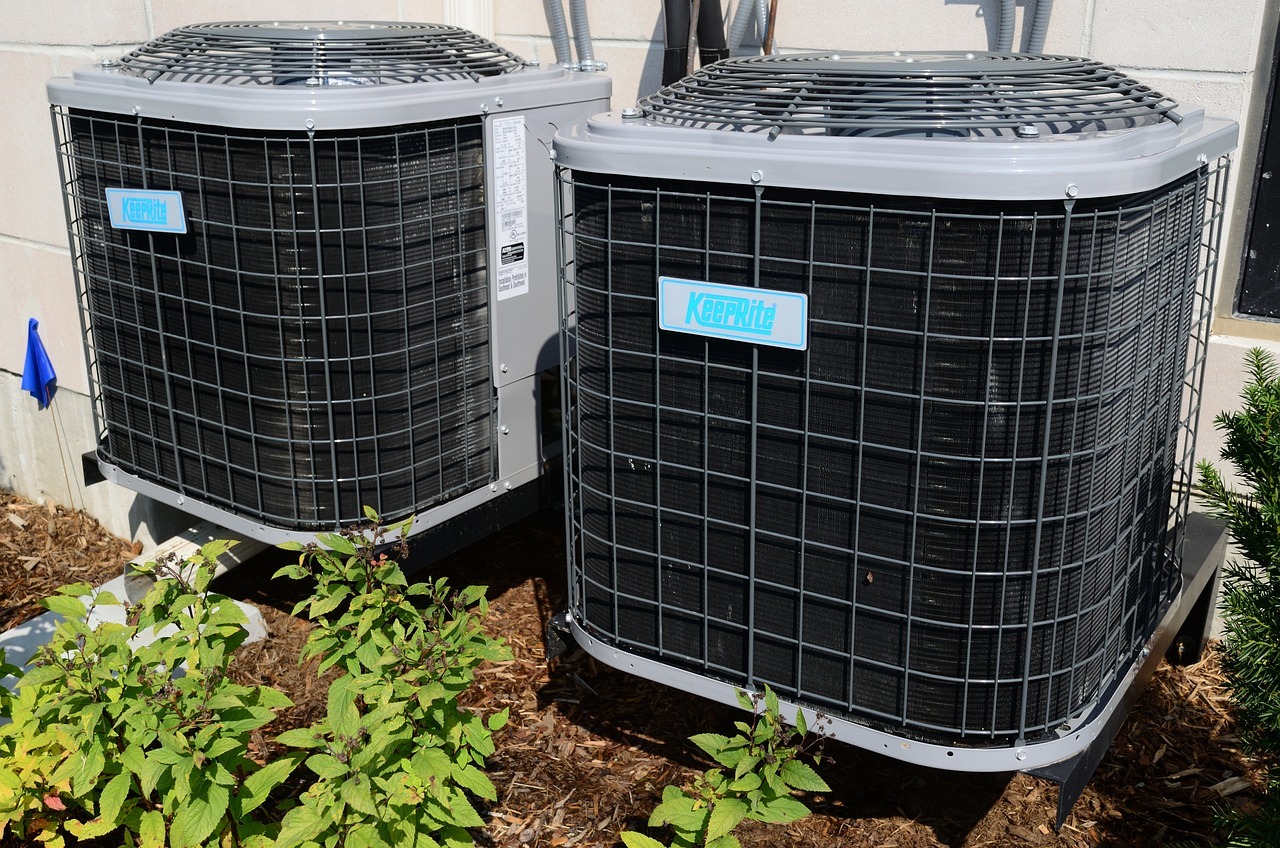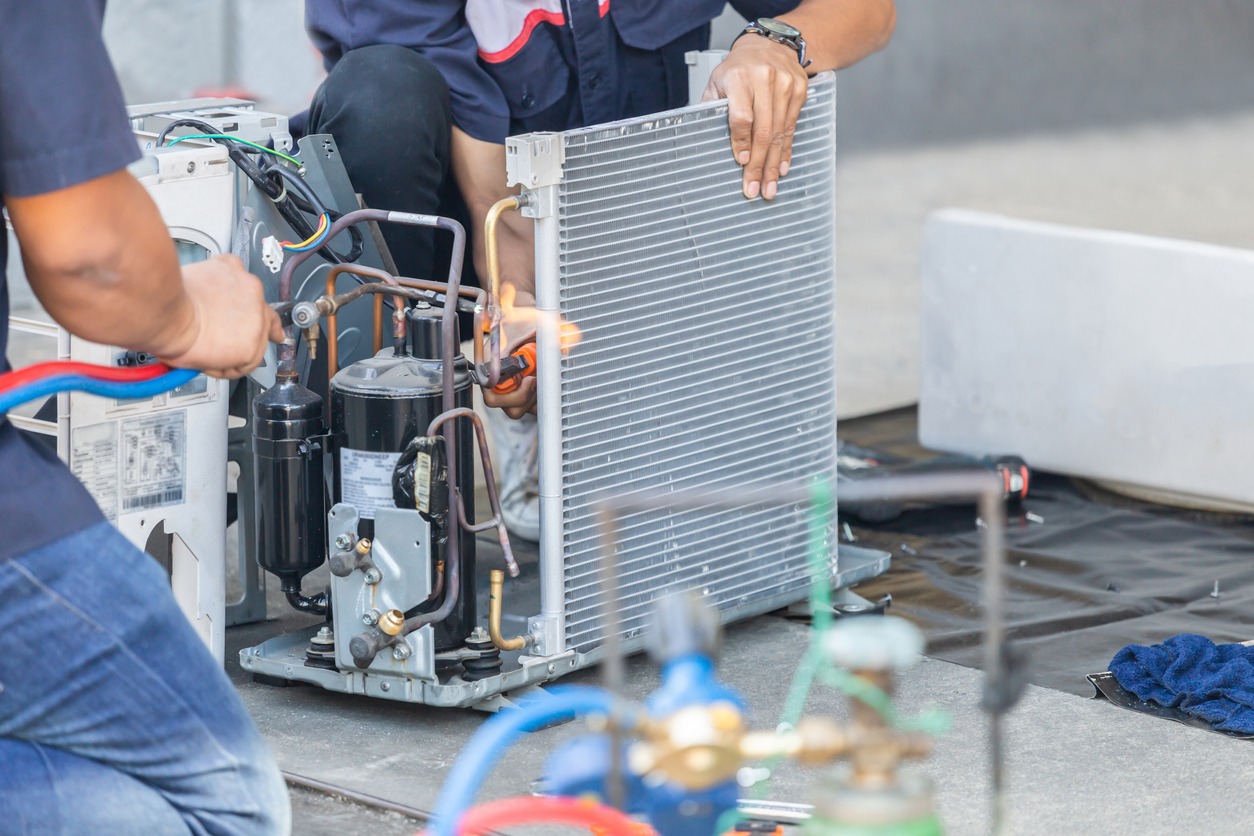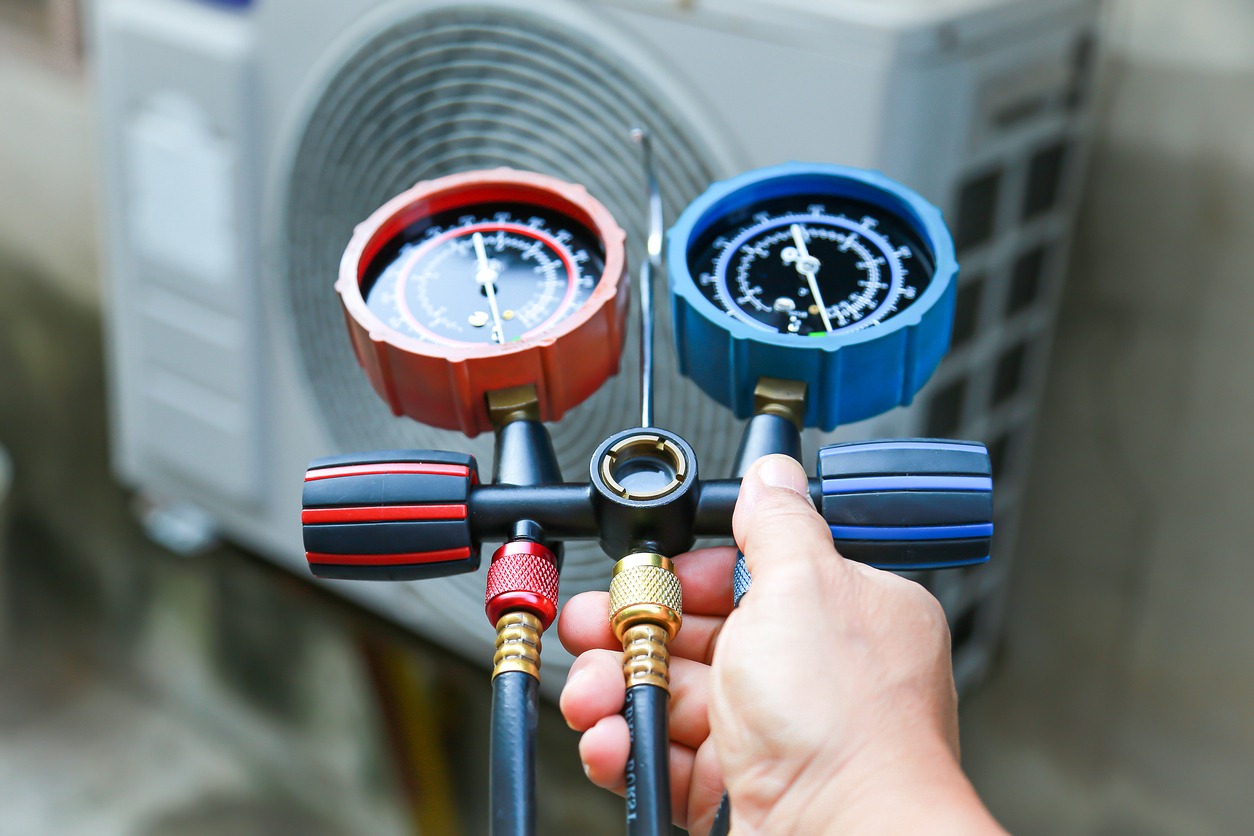Air conditioning compressors are the heart of any cooling system, tirelessly working to keep our environments comfortable. However, when these vital components start producing loud, unexpected noises during operation, it can be a cause for concern and a signal that something within the system may be amiss. Homeowners and facility managers alike often face this perplexing issue, which not only disrupts the tranquility of a space but can also indicate potential damage or inefficiency within the AC unit. Understanding the common reasons behind these auditory anomalies is crucial for timely intervention and ensuring the longevity of your air conditioning system. This article will delve into the various factors that contribute to noisy AC compressors, providing insights into the mechanics of these disturbances and offering guidance on how to address them effectively.
Common Reasons for Loud Noises in AC Compressors
A symphony of unusual sounds from your AC compressor is a clear indicator that your system may be experiencing trouble. These auditory signals can arise from a multitude of issues, each with its own set of causes, ranging from simple mechanical hiccups to complex electrical malfunctions. In the following segments, we’ll delve into the primary culprits behind your AC compressor’s noisy outbursts. We’ll dissect the intricacies of each potential problem, from lubrication deficiencies to the impact of refrigerant issues, and from the presence of system contaminants to the inevitable effects of aging. By understanding these common concerns, you’ll be better equipped to ensure your AC system runs smoothly and silently, while also preventing the escalation of damage that could lead to more severe and expensive outcomes.
Lack of Lubrication and Worn Bearings
A cacophony of grinding or screeching from your AC compressor can often be traced back to lubrication issues or bearing wear. The compressor relies on these elements to operate seamlessly, much like the engine of a car.
As the lubricating oil ages or diminishes due to leaks, the increased friction among the compressor’s internal components can lead to harsh metallic interactions. This lack of lubrication means parts such as the crankshaft and connecting rods may rub aggressively against each other, causing wear that manifests as alarming noises.
Bearings play a pivotal role in facilitating the smooth rotation of the compressor’s shafts. When these bearings wear down, they emit a distinctive groaning or squealing sound, signaling that smooth metal-on-metal movement is compromised. The resulting friction not only produces noise but also generates heat, accelerating the deterioration of the bearings.
It’s crucial to remember that these issues extend beyond mere noise pollution. They can lead to overheating and eventual compressor failure if not promptly addressed. Routine oil level checks and the application of the appropriate lubricant during servicing are essential steps in preserving the quiet and effective operation of your compressor.
To circumvent these issues and the subsequent damage they can cause, it’s advisable to integrate regular maintenance checks into your AC system’s care routine. These checks should include a thorough examination of lubrication and bearing integrity to ensure your system remains in optimal condition, free from the disruptions and potential failures that can stem from such seemingly minor concerns.
Loose Components and Damaged Isolation Feet
An air conditioner’s performance hinges on the stability of its parts. When fasteners such as bolts and screws become less secure, a cacophony of rattles and clangs may ensue. This is often the case when the unit has been subjected to persistent vibrations or has recently undergone maintenance without a meticulous re-fastening process.
Equally troublesome are the isolation feet—those crucial dampers that cushion the compressor. Designed to quell vibrations, these components can succumb to the ravages of time and the elements, losing their elasticity and disintegrating. This deterioration can lead to the compressor gyrating excessively, which not only produces noise but also exacerbates the loosening of other parts.
To address these concerns, a thorough evaluation should be conducted to assess the condition of the isolation feet and the tightness of all fasteners. Replacing worn pads and securing any slack elements are essential steps to restore tranquility and avert further mechanical complications. As we’ve touched on in previous discussions, regular upkeep is instrumental in catching these issues early, ensuring your system runs smoothly and silently.
Compressor Motor and Electrical Issues
The heart of your AC system, the compressor motor, can become a source of disconcerting sounds if it encounters electrical troubles. Hard starts, which produce a struggling, halting noise upon activation, may indicate compromised motor windings, a deteriorating capacitor, or erratic electrical supply.
Capacitors play a pivotal role in jump-starting the compressor, and their failure can lead to a symphony of hums and buzzes. Additionally, wiring defects or shaky electrical connections can manifest as clicking sounds or the ominous crackle of electrical arcing. These issues not only disrupt service but can also precipitate motor overheating, potentially damaging the insulation and escalating operational noise.
Electrical faults pose a significant risk and, in extreme scenarios, could ignite a fire. This underscores the importance of comprehensive maintenance, extending beyond noise prevention to encompass electrical safety and system efficiency. Technicians should meticulously evaluate the motor’s performance, scrutinize electrical connections, and test ancillary components such as capacitors and contactors to ensure the compressor motor’s quiet and reliable function.
Refrigerant Levels and Faulty Compressor Valves
Maintaining the correct amount of refrigerant is crucial for an air conditioner’s compressor to operate quietly and efficiently. Deviations from the ideal refrigerant charge—whether too low or too high—can result in the compressor working overtime, manifesting as increased noise. For instance, a hissing or bubbling sound might be the telltale sign of a refrigerant leak, indicating that the gas is escaping through a fissure in the system.
On the flip side, an excess of refrigerant can be just as problematic. The heightened pressure from an overcharged system forces the compressor to labor excessively, often causing a cacophony of knocking or clanging sounds.
Furthermore, the smooth operation of the compressor relies on the integrity of its valves. These components are responsible for directing refrigerant flow, and if they are compromised—whether by wear or by foreign particles—they may produce a chattering or rattling. Such noises are a clear sign that the valves are not sealing correctly, leading to inefficient compressor performance and increased noise.
To prevent these issues, it’s essential to have an HVAC technician regularly check the refrigerant charge and ensure the system is free from contaminants that could damage the compressor valves. Through diligent maintenance, the risk of noise pollution from these sources can be significantly reduced.
System Contaminants and Age-Related Deterioration
Contaminants in the air conditioning system can wreak havoc, leading to a noisy AC compressor. When the system’s air filter fails or ductwork is compromised, pollutants like dust and debris can infiltrate and accumulate. This not only impairs heat exchange efficiency but can also lead to internal damage, exacerbating wear on components like compressor valves.
As the system ages, the natural wear of components can also contribute to a rise in operational noise. Seals and bearings may degrade, and vibration-damping materials can lose their effectiveness, resulting in a range of distressing sounds from grinding to screeching. Metal fatigue, too, can manifest in audible ways, signaling a compressor in decline.
Corrosion is another age-related factor that can impair component function and amplify compressor noise, particularly in regions with salty air. As parts corrode, their efficiency dwindles, potentially leading to seizing and subsequent distressing sounds as the compressor struggles.
To combat these age and contaminant-related issues, proactive measures are key. Regular system inspections and cleanings, including air filter replacements and coil maintenance, are essential. These actions help to maintain a serene operation of the AC unit and extend its serviceable life.
Preventive Maintenance and Regular Inspections
To forestall the cacophony that can emanate from an air conditioning compressor, nothing is more crucial than a regimen of preventive maintenance and systematic inspections. A certified HVAC technician, armed with expertise, can avert the issues that lead to noise, including those related to mechanical wear and the need for lubrication. During a comprehensive review, the technician will scrutinize the compressor, verify refrigerant levels, inspect electrical components for integrity, and confirm that the unit is securely anchored—all to ensure smooth operation.
Inspections conducted with regularity serve as an early detection system for potential malfunctions. They can reveal issues such as compromised isolation feet or electrical anomalies before they amplify into more severe problems. These check-ups often involve a thorough cleaning of filters, a meticulous examination of hoses and belts for early signs of wear, and the maintenance of condenser and evaporator coils to avert the buildup of system contaminants.
Technicians will also be on the lookout for leaks and blockages, which, if neglected, can overburden the compressor and result in increased noise levels. They’ll fine-tune the thermostat and survey the ductwork for any impediments or leaks that could force the compressor to overexert itself, thus generating additional noise.
Embracing preventive maintenance and regular inspections is the cornerstone of ensuring a whisper-quiet and efficient AC system. These practices not only prolong the life of the equipment but also bolster its performance and diminish the chance of unexpected repairs. It’s wise for homeowners to arrange for such maintenance annually, ideally before the onset of the high-demand cooling season, to preserve the tranquility of their living space.
Urgency of Addressing Unusual Noises
The sudden onset of peculiar sounds from an air conditioning compressor is a red flag that should be promptly heeded. Delay in responding to these auditory signals can escalate a trivial issue into a catastrophic system breakdown, incurring substantial repair costs or necessitating the replacement of the compressor.
Unanticipated noises—a hum, clatter, sibilance, or sharp report—often herald the advent of problems. These can include the likes of refrigerant leaks, electrical complications, or the loosening of internal components. Swift action can intercept these troubles before they worsen and jeopardize the entire cooling apparatus.
Disregarding these auditory cues can also lead to a surge in energy consumption as the system struggles to maintain performance, which in turn inflates utility bills. Moreover, operating a compromised compressor without rectifying the issue can precipitate a cascade of failures throughout the AC system.
For the sake of safety, it is imperative to respond immediately to unusual noises. Electrical issues can present fire hazards, while refrigerant leaks pose environmental threats and can impact the quality of indoor air, affecting well-being.
Homeowners are thus urged to view any unexpected noises as pressing concerns and to seek the expertise of an HVAC technician without delay. This proactive approach safeguards not only against further damage and additional costs but also ensures the safety and comfort of the home’s inhabitants.
Selecting a Qualified HVAC Service Provider
When it comes to addressing concerning noises from your AC compressor, the expertise of a seasoned HVAC service provider is indispensable. Here’s how to ensure you’re entrusting your system to the best in the business:
- Certification and Training: Seek out technicians who boast certifications from esteemed industry bodies, such as North American Technician Excellence (NATE). These credentials signify that the technician has mastered their craft through comprehensive training and has successfully passed stringent exams.
- Experience: The complexity of HVAC systems requires a seasoned hand. Providers with a long-standing presence in the industry typically bring a wealth of experience to the table, having honed their problem-solving skills over countless projects.
- Reputation and Reviews: Take the time to peruse online testimonials, solicit references, and converse with acquaintances about their experiences. A trail of satisfied clients usually points to a provider’s commitment to excellence and reliability.
- Insurance and Licenses: Verify that your chosen provider is fully insured and possesses the necessary licenses as required by state regulations. This is a critical safeguard that protects you from potential liabilities during the repair process.
- Written Estimates: Transparency is key. A reputable HVAC service provider will have no hesitation in furnishing you with a comprehensive written estimate, clarifying the scope and cost of the job before any work commences.
- Professionalism and Customer Service: Gauge the provider’s dedication to customer satisfaction through their communication style, timeliness, and overall demeanor. These qualities often mirror the caliber of service you will receive.
- Maintenance Agreements: Providers that offer maintenance agreements demonstrate a commitment to the longevity and efficiency of your HVAC system. Such arrangements typically include routine check-ups and preventive care, which are essential for optimal performance.
In your quest for the right HVAC specialist, thorough research is your ally. Opt for a provider that not only meets the above criteria but also aligns with the unique requirements of your system. This careful selection will pave the way for a tranquil and well-maintained home environment.
Useful FAQ for Troubleshooting Loud Noises in AC Compressors
1. What are common reasons for loud sounds coming from an AC compressor during operation?
Common reasons for loud noises during operation include refrigerant not cycling properly, damaged compressor isloator, faulty motor bearings, and system operating at high pressure.
2. Does a faulty motor bearing contribute to noise during AC operation?
Yes, faulty motor bearings can cause excessive noise during operation. The bearings can become worn out due to lack of lubrication or age, resulting in loud screeching or grinding noises.
3. Why would the refrigerant not cycling properly cause excessive noise?
Refrigerants not cycling properly in an AC compressor often cause a bubbling or hissing noise. This malfunction is generally due to a refrigerant leak, which can limit the system’s ability to cool the air, resulting in excessive noise.
4. Can a damaged compressor isolator cause noise within the AC system?
Certainly, a damaged compressor isolator, rubber components which reduce compressor vibrations from travelling to other parts of the appliance, upon getting worn out or damaged, can cause the compressor to become imbalanced, hence the excessive noise.
5. What causes an AC system to operate at high pressure, and how does this produce noise?
AC systems usually operate at high pressure due to dirty coils or when refrigerant levels are too high, both of which result in louder-than-normal sounds. The extra pressure can also lead to a system breakdown if not addressed promptly.
6. Are cracks or leaks in the AC system a possible cause for excessive noise?
Definitely, cracks or leaks can also contribute to excessive noise, as these factors may lead to refrigerant leaks. In turn, this lack of refrigerant disrupts the cooling cycle causing the system to work harder, producing more noise.


